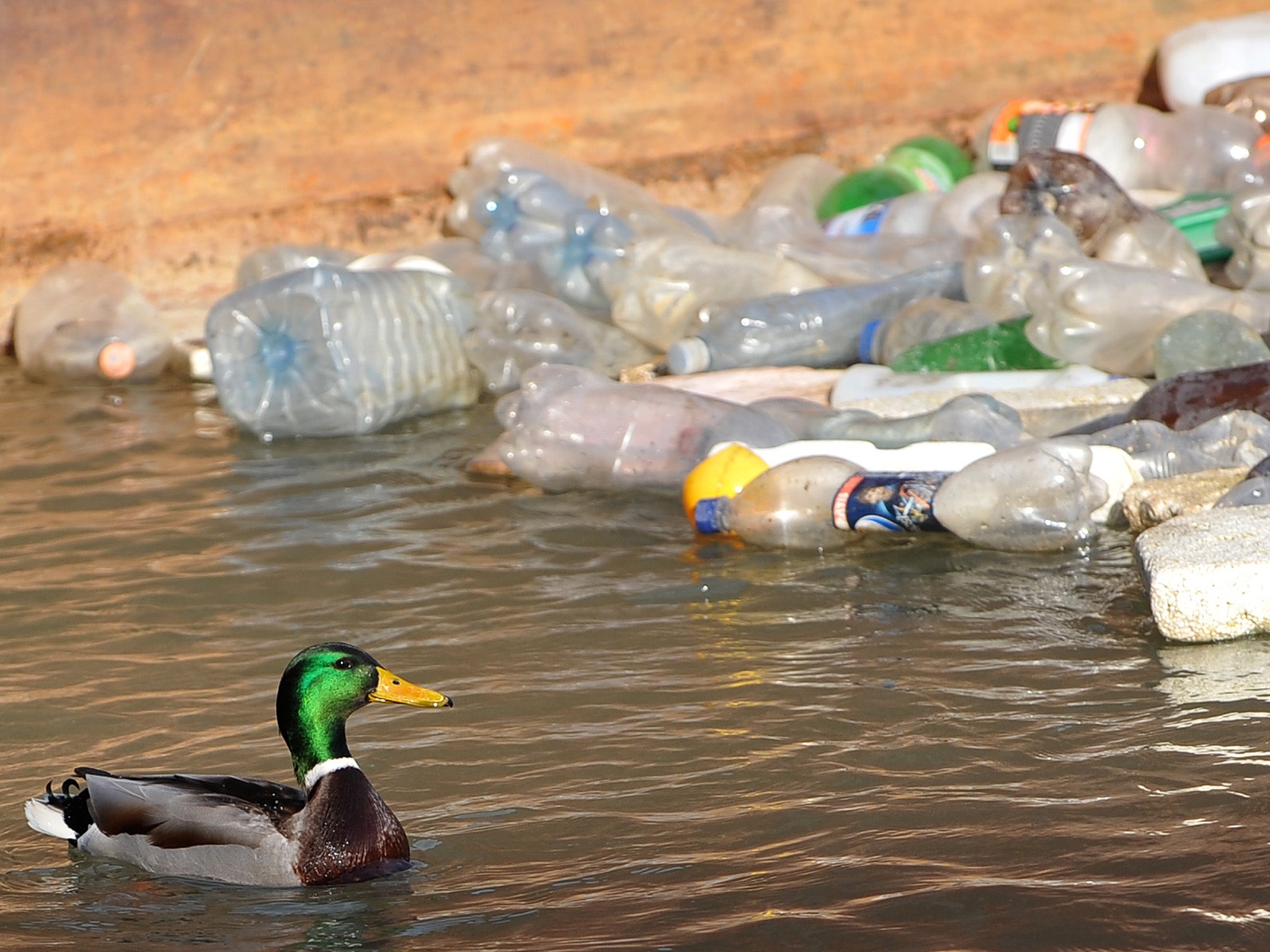MPs launch probe into environmental damage done by disposable coffee cups and plastic bottles
Only around half of the 35 million plastic bottles sold every day in Britain are collected to be recycled

Your support helps us to tell the story
From reproductive rights to climate change to Big Tech, The Independent is on the ground when the story is developing. Whether it's investigating the financials of Elon Musk's pro-Trump PAC or producing our latest documentary, 'The A Word', which shines a light on the American women fighting for reproductive rights, we know how important it is to parse out the facts from the messaging.
At such a critical moment in US history, we need reporters on the ground. Your donation allows us to keep sending journalists to speak to both sides of the story.
The Independent is trusted by Americans across the entire political spectrum. And unlike many other quality news outlets, we choose not to lock Americans out of our reporting and analysis with paywalls. We believe quality journalism should be available to everyone, paid for by those who can afford it.
Your support makes all the difference.As millions of plastic bottles and cardboard coffee cups are thrown away every day, an inquiry has been launched into the environmental damage of disposable drinks packaging.
The Commons' Environmental Audit Committee started the inquiry as household recycling rates have stalled around 44 per cent, far off the Government’s target to increase the rate of plastic packaging recycling to 57 per cent by the end of 2017.
Mary Creagh, the committee's chair, said: “Our throwaway society has given us a tide of litter on our beaches, dead seabirds and fish, and plastic in our food.
“We all enjoy a takeaway coffee or tea, but the cups they are served in are particularly difficult to recycle because they combine plastic coating and cardboard.
“Our inquiry will be taking a serious look at solutions like the use of different materials, behaviour change, better recycling and bottle deposit return schemes.”
Government data shows that plastic bottles and coffee cups are particularly problematic when it comes to recycling.
Only around half of the 35 million plastic bottles sold every day in Britain are currently collected to be recycled.
In countries such as Germany bottle deposits have been successful in achieving high recycling rates. According to a study by Forum PET, more than 93 per cent of disposable bottles were recycled in Germany in 2015.
In Scotland, campaigners have called for a deposit return schemes for cans and bottles, which is now being considered by the Government.
Shoppers would have to pay an extra 10p or 20p for each bottle they buy, which would be refundable upon returning the bottle.
Drink giant Coca-Cola said it would back the scheme in Scotland.
Meanwhile, around seven million cardboard coffee cups are thrown away every day and only one in 400 are recycled - the remaining ones go to landfill or end up in the environment.
In order to make coffee cups waterproof, the cardboard must be fused with polyethylene, the most common form of plastic. But standard UK recycling mills do not have the capacity to separate the plastic from the rest of the material, which makes the composting and recycling of paper cups uncommon.
Only two sites across the UK have the capacity to separate the plastic coating from the paper and allowing the cups recycling into new paper products.
The probe would look are what actions are being undertaken by the industry and the Government to reduce waste generated by coffee cups and plastic bottles and investigate possible solutions.
In 2014, plastic recycling rate in the UK was a low 23 per cent of the 2.2 million tonnes used throughout the year while plastic bags and food and drink containers end up in the oceans.
Last year, a report from the Ellen MacArthur Foundation found that by 2050, plastic could outweigh fish in the oceans.
The inquiry welcomes submissions on how to help increase recycling of plastic bottles and coffee cups and reduce the amount of packaging ending up in landfill or the environment.
All respondents should use the series of questions asked by the Environment Audit Committee to inform their response.
The full list of questions can be found here and submission should be sent before 5pm on 5 April.
Join our commenting forum
Join thought-provoking conversations, follow other Independent readers and see their replies
Comments